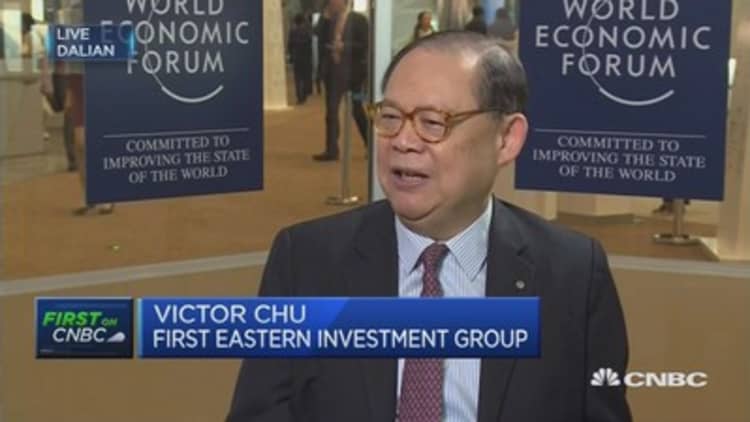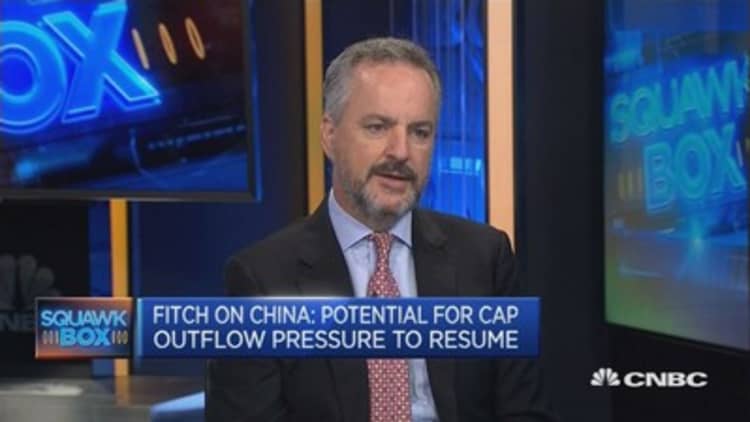Speculation is rife that China could create a "super regulator" at a major policy meeting this weekend as part of its efforts to curb risk in its financial system.
The gathering, called the National Financial Work Conference, occurs every five years and started in 1997 in the wake of the Asian financial crisis. The closed-door meeting of top Chinese finance officials has addressed ways to manage the country's financial system and help support economic growth. This year's conference is expected to focus on reining in risks and on improving coordination among regulators.
Chinese state financial paper, China Security Times, suggested that the current system of having one central bank and three regulatory agencies for banking, securities, and insurance, has entrenched interests which could present challenges.

"It is a hard nut to crack to change this model," the Times said. "The biggest obstacle is attempting to re-assign responsibilities, power, and personnel."
China's financial markets are monitored and regulated by the People's Bank of China (PBOC), China Banking Regulatory Commission, China Securities Regulatory Commission, and China Insurance Regulatory Commission. At times, the regulatory bodies do not act in tandem.
The creation of a super regulator has been widely discussed within financial circles for years and gained traction after the 2015 stock market turmoil. At that time, President Xi Jinping ordered a plan to streamline financial oversight. President Xi is said to be attending this year's conference.
One option believed to be debated is to consolidate regulatory power at the PBOC. Another proposal is to create a coordinating committee within the central bank. Either way, economists such as Xu Hongcai feel encouraged by the conference's agenda.
"In grey areas in the financial markets, none of the (three regulatory commissions) were taking responsibility to fully monitor the situation," Xu, deputy chief economist at the China Center for International Economic Exchanges, told CNBC.
"So certain products were left to grow wildly and this has created a lot of risk and fostered bribery and corruption."

Past conferences have led to important decisions such as the establishment of the sovereign wealth fund. Implementation for any plans this year will likely be on hold until after after the 19th National Congress which is expected to result in a leadership reshuffle in the fall.
Even so, Xu believes any announcement encouraging more coordinated regulation and an effort to deleverage risk further in China's financial markets will only be received positively by international investors.
"This meeting sends a good signal to investors in China and abroad," Xu said. "It shows that China will have more stable and open financial markets and that China will continue to work on internationalizing its capital markets and its economy."
The National Finance Work Conference began on July 14 and, according to local media reports, will continue to run through the weekend.

